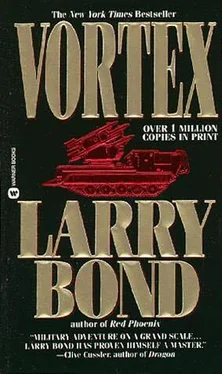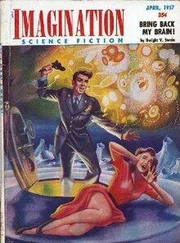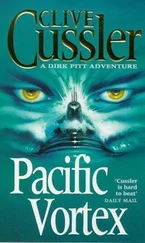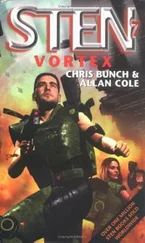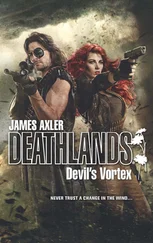Castro looked a little impatient. Political orations were usually left to him, but many of the staff officers clustered around the room nodded and Vega took heart from that.
“Our internationalist duty brought us here to fight against capitalist aggression. As loyal socialists, we are glad to do so. But we are only engaged in fighting the symptoms of this disease this racist blot on
Africa’s soil. Even a victory here in Namibia will not end Pretoria’s machinations. Therefore, I propose that we take direct action against these Afrikaner imperialists. “
Vega flipped the Namibian situation map over the back of the easel, revealing a map showing all of southern Africa. Red phase lines and arrows converged on Pretoria from three separate directions. He saw
Castro’s eyes widen in surprise.
“We must occupy South Africa, destroy its corrupt, capitalistic regime, and build an African socialist state in its place!”
Vega had expected shocked gasps or muttered exclamations. Instead, his words were met by absolute silence. All eyes were riveted on the map, and
Vega quickly motioned to a lieutenant, who started passing out copies of a thick document, first to Castro, then to everyone else in the room.
Cuba’s president glanced down at the binder in his hands and then back up at Vega in open disbelief.
“Let me see if I understand you correctly,
General. You are proposing that we invade South Africa itself?”
Vega nodded, aware that many in the room must think him mad.
“And you make this proposal for expanding the war after proving that we cannot win even a more limited campaign here in Namibia?” Castro didn’t bother concealing his sarcasm and Vega shivered slightly. The President’s biting wit had an unfortunate tendency to slide into murderous rage.
He composed himself.
“Yes.”
Castro visibly fought for control over his growing anger. Vega had a reputation as a brave and intelligent soldier, not as a suicidal idiot.
“Explain yourself, General.”
“It is a question of who holds the initiative, Senor Presidente.” Vega was careful to show every sign of respect.
“So long as we fight only in
Namibia, we are deadlocked. The war will move along the lines of a strict mathematical
formula. So many troops, tanks, and guns producing so many casualties and consuming such and such a proportion of each nation’s treasure. We will lose that kind of a war. I I
He paused as murmurs of agreement rose from the watching officers.
“And that is precisely why we must not fight the way Pretoria expects us to fight. Cuba must seize the initiative. Cuba must carry this war into a new arena, a new phase of revolutionary combat!”
He took a step toward Castro.
“South Africa’s whites are strong, Senor
Presidente, when they fight on foreign soil. But at home they are a weak, increasingly fearful minority -kept safe only by their monopoly on the instruments of military power. South Africa’s vast black and colored proletariat is polarized and anxious for liberation from the capitalists who keep it poor, undereducated, and underpaid.”
He could see Castro’s anger fade away, replaced by a look of dawning comprehension. The Cuban president muttered more to himself than anyone else.
“A revolution waiting to happen… “
Vega nodded.
“Exactly. A revolutionary fire storm we could ignite with a sudden, unexpected counterattack into South Africa itself.” He tapped the map contemptuously.
“With most of its professional army tied down in
Namibia, a wholesale uprising would shatter Pretoria’s racist state once and for all.
“We have already gathered tremendous international goodwill for our fight here in Namibia. Imagine our standing if we destroy the agent of Western imperialism in Africa-the last colonial power, still fighting to retain control of the scraps of its empire!” Vega’s eyes were shining now, and his voice was clear and strong.
He went on, hammering home every conceivable advantage.
“A socialist South
Africa would have tremendous resources at its disposal, sir. The gold, diamonds, uranium, and other strategic minerals the capitalists crave. The resources the plutocrats will come begging for. And with our guidance, this new South Africa could lead the rest of Africa fully out from under Western domination. We could revitalize the socialist movement worldwide!”
Castro was smiling now, a full-mouthed, toothy, sharklike grin. Then the smile faded.
“And what of the Soviet Union, Antonio. How will we persuade them to back such an audacious venture?”
With the prospect of riches, of course, thought Vega. Over the past few years, the Soviets had shown themselves to be fair-weather communists-unworthy of the great Lenin. But that was not what Castro would want to hear.
“We must remind the Soviets of their own history, drag them kicking and screaming back to their own revolution! This will be a war of liberation, waged not just by us, but by the entire international socialist movement against the last, worst vestige of
Western colonialism in Africa!”
Vega paused for breath and heard his voice replaced by the sound of clapping, first from just Fidel Castro, and then from the rest of the assembled officers-all of them applauding the Victor of Walvis Bay.
He stood motionless, smiling gravely, inwardly elated. Castro was ~onvinced. Cuba would carry its war into South Africa’s own streets, fields, and mines. Karl Vorster and his arrogant Afrikaners would reap the very whirlwind of death and destruction they themselves had sown.
SEPTEMBER 9-20TH CAPE RIFLES, NEAR BERG LAND NAMIBIA
Fires set by the day’s last artillery barrage flickered redly on distant hillsides-tiny points of light glowing against the dark mountains and darker sky. Nightfall hid the ugly debris left by war-open ground pockmarked by shell bursts, mangled wrecks that had once been fighting machines, and bare, boulder-strewn hills scarred by slit trenches and sandbag-topped bunkers.
Commandant Henrik Kruger lowered his binoculars. Nothing. No secondary explosions or any other signs that the
artillery fire had had any real effect. The Cubans were too well dug in.
From all appearances, this latest barrage had done nothing more than tear up a few more acres of worthless Namibian soil.
He sighed and turned away, half-walking, half-sliding down the ridge toward his command bunker. Clusters of weary, bedraggled men clambered upright from around small camp stoves as he passed by, some clutching mugs of fresh brewed tea, others half-empty mess tins.
Kruger forced a smile onto his face as he acknowledged their soft-voiced greetings. It wouldn’t do for the battalion to see its leader looking discouraged. Three weeks of hard marching, hard fighting, heavy casualties, and now this endless, wearing stalemate had ground the 20th
Cape Rifles down.
They still attacked with as much courage and expertise as ever, but without the boundless self-confidence and easy assurance of certain victory that had once characterized South Africa’s army. Too many of the best noncoms and junior officers were gone-dead or lying maimed in military hospitals. Those who survived were bone tired. Their rare moments of rest were disturbed by the disconcerting rumors flowing north out of South Africa. Rumors of defeats and crippling losses near Walvis
Bay. Of student riots and police shootings. Of a guerrilla war spreading like wildfire through Natal Province. Of a strained economy beginning to unravel.
Kruger ground his teeth together. Goddamn those idiots Vorster, de Wet, and all their mewling lap dogs In less than three months, they’d managed to drown the country in a sea of troubles-foreign war, civil insurrection, and economic chaos. What disaster would be next?
Читать дальше
